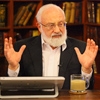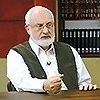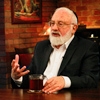Audio Version Of The Blog – 11/18/20
Listen to an Audio Version of the Blog
Download:MP3 Audio

Listen to an Audio Version of the Blog
Download:MP3 Audio
 From My Facebook Page Michael Laitman 11/18/20
From My Facebook Page Michael Laitman 11/18/20
The editor of one of the papers where I write regular op-eds requested more information on my message that if Jews are not united, they bring anti-Semitism on themselves. Specifically, he wanted to know my sources for making this argument so insistently.
He is correct; people need to know where ideas come from, especially ones that are hard to swallow. Therefore, I have decided to write a series of articles that explain where Jews come from and why they have always been hated, with a few brief exceptions that also didn’t end well.
But before I begin, I’d like to recommend my latest publication on this subject, The Jewish Choice: Unity or Anti-Semitism: Historical facts on anti-Semitism as a reflection of Jewish social discord. It will give you ample information about the origins of the Jewish people, the root of Jew-hatred, what they ought to do about it, and how their fate relates directly to their unity or lack thereof. In this series, I will provide sources, but not nearly as much as you will find in the book.
In the first articles, I’ll focus on the origin of our nation. I will show that antisemitism, albeit without that name, began as soon as our nation started forming.
Abraham, the father of the nation, was an inquisitive man. The son of a venerated priest by the name of Terah, he, too, joined the family business and worked at his father’s shop selling amulets and idols. In Mishneh Torah, Maimonides’ renowned composition, the 12th century sage explains that Abraham “had neither a teacher nor a tutor. Instead, he was wedged in Ur of the Chaldeans [Babylonian city] among the illiterate idol worshippers, with his mother and father and all the people worshipping stars, and he—worshipping with them.”
But as just said, Abraham was inquisitive; idols didn’t satisfy him. “His heart roamed and understood until he attained the path of truth and understood the line of justice with his own correct wisdom,” writes Maimonides.
Abraham understood that there was only one force in the world, and called that force “God.” To his idol worshipping contemporaries, this was revolutionary thinking, “blasphemy,” if you will. Despite the objection of his father and even the dismay of King Nimrod, Abraham insisted on spreading the message to his countryfolk. “He planted this tenet in their hearts and composed books about it,” writes Maimonides. He “taught his son, Isaac, and Isaac sat and taught and warned, and informed Jacob and appointed him a teacher, to sit and teach and keep all those who accompanied him. And Jacob the Patriarch taught all his sons, and separated Levi and appointed him as the head, and had him sit and learn the way of God and to keep Abraham’s commandments.”
The books that Abraham wrote relayed that two forces emanate from the singular force called God: giving and receiving. They explained that all of reality consists of interactions between the two forces. When they are balanced, things run smoothly; when they are not, bad things happen.
Abraham noticed that in his days, the receiving force was becoming significantly more intense than the giving force. He noticed that people had become more self-absorbed, impatient toward each other, and tried to encourage them to be kinder to each other in order to balance giving with receiving. This is why to this day, Abraham represents mercy and kindness.
The Babylonians, proud and selfish, decided to build a tower that would demonstrate their greatness. However, the tower, which we now call The Tower of Babylon, was a testimony to their hatred for each other. The book Pirkey de Rabbi Eliezer, one of the most prominent Midrashim (commentaries) on the Torah offers a vivid description of the Babylonians’ vanity: “Nimrod said to his people, ‘Let us build us a great city and dwell in it, lest we are scattered across the earth … and let us build a great tower within it, rising toward the heaven … and let us make us a great name in the land.’”
But more important than their vanity, the commentary offers a glimpse into the Babylonians’ alienation from each other: “They built it high … [and] if a person fell and died, they would not mind him. But if a brick fell, they would sit and weep and say, ‘When will another come up in its stead.’”
Despite Abraham’s warnings that their way would lead them nowhere good, they mocked him. The book Kol Mevaser writes that Abraham “would go outside and call out loud that there is one Creator to the world.” Alas, “to the people, he seemed as though he were insane, and children and grownups would hurl stones at him. Yet, Abraham did not mind any of it and kept on calling.”
Despite the derision, Abraham’s efforts did not go unrewarded. After he was expelled from Babylon and left for the land of Canaan, he kept on circulating his discovery. Maimonides’s elaborate descriptions tell us that “He began to call out to the whole world … wandering from town to town and from kingdom to kingdom until he arrived in the land of Canaan … When [people in the places where he wandered] gathered around him and asked him about his words, he taught everyone … until he brought them to the path of truth. Finally, thousands and tens of thousands assembled around him, and they are the people of the house of Abraham.”
That was the beginning of the Jewish people—an assembly of people who had nothing in common but their conviction that receiving must be balanced with giving, and who were willing to toil in order to develop the quality of mercy within them.
In the next article, I will focus on Abraham’s descendants’ entry into Egypt and the beginning of Jew-hatred.
[274250]

We see how in nature one eats another—this is because we treat each other egoistically. With our ego, we influence all other degrees of nature—the still, vegetative and animate. When we correct the ego-desire, the wolf will dwell in peace with the lamb, no one will attack anyone else.
Unity is a sure remedy against the virus. It is a salutary means against all problems since we then become similar to the common, global, integral nature. By uniting in this way, we connect more to the general force of nature, which will properly arrange all systems of our life.
The more an athlete trains, the stronger he becomes, strengthening the ego. He is always pleased with his achievements. A Kabbalist strives to weaken the ego through the studies, in order to rise above it. For egoism, the state seems unfortunate, but for a Kabbalist this is a desirable state.
A Kabbalist looks at his animate body as a researcher. In the animate, the force of reception, egoism, is revealed, but a Kabbalist wants the force of bestowal to be revealed in him. He feels himself as a completely neutral researcher, not belonging to reception nor to bestowal.
A Kabbalist rejoices at the bad just as the good. However, this does not mean he’s a masochist because a Kabbalist does not attribute suffering to himself, but only to egoism, which was created by the Creator. He perceives egoism not as his own will to enjoy, but as a force that comes from the Creator.
I am always rising and falling: MAN – MAD. That is how each one works in the group, all ten of our cylinders. By absorbing the friends’ desire, I want to bring them closer to the Creator. From Him I receive forces, fillings, revelations, and pass this to the friends. I am a conveyor belt in both directions.
On the first roll of the piston, I drown in the ten and draw the friends’ desires from there. On the second roll I raise these desires to the Creator. This ascent is MAN, I ask for everyone, and receive a force from above. With this force I descend down and pass it on to the friends—receive a new desire from them and raise MAN.
Every person should be the smallest one in the ten, and the greatest one. If everyone in the ten works this way, we will get an engine with ten cylinders—just imagine how powerful that is! All the pistons pump up our common volume, until we overfill the measure and the Creator is revealed inside.
From Twitter, 11/18/20
Related Material:
My Thoughts On Twitter 11/17/20
My Thoughts On Twitter 11/16/20
My Thoughts On Twitter 11/14/20
 Question: How does the change in man’s heart occur? I understand that coercion cannot change our feelings, but I do not see that education changes our feelings.
Question: How does the change in man’s heart occur? I understand that coercion cannot change our feelings, but I do not see that education changes our feelings.
Answer: The fact is that we do not have an example of such education. After all, today’s education is based on compulsion where you act with punishment and not with encouragement.
Education by encouragement means that you show a person how good circumstances lead to a good future, and how bad deeds lead to failure. When studying the science of Kabbalah, the surrounding upper light acts on us and awakens in us the future corrected states with its glow. This is not the case in any other method.
[273560]
From KabTV’s “Communication Skills” 9/11/20
Related Material:
Launch An Educational Process
The Education Of A Lifetime
Hear And Be Heard
 Question: Is equality one of the main principles of communication?
Question: Is equality one of the main principles of communication?
Answer: In general, yes. But this is conditional equality because there is no one person who is equal to another. Otherwise, we would have become one.
The principle of correct communication is that everyone can express themselves as fully as possible in a collective action.
Question: Throughout history, the meaning of social equality has constantly changed. In antiquity, equality was observed within the estates, while there was no equality between the estates.
In medieval Christian philosophy, it was believed that everyone is equal before God, although everyone understood what God is in their own way.
In the Age of Enlightenment, the concept of social equality was based on personal qualities, on individualism: everyone should have equal rights and equality before the law. But they did not take into account that all people are different by nature, and so it still turned out to be inequality.
Socialist teachings led people to equalization.
As a result of the constant desire for equality, society has come to the triumph of liberalism and permissiveness. How do you see the next stage of development?
Answer: Equality means that everyone should strive to make society integral to the best of their abilities. In this integrality, we will become conditionally equal.
Everyone will receive and give as much as they can, can, need, and should. We cannot weigh each person and say how much they owe and how much they do not. It is the right relationship between people that should lead them not to statistical, but conditional equality.
Question: If everyone got everything they wanted and everyone was satisfied with their needs, would it be possible to say that we are equal in this?
Answer: No. Even if you imagine such a fantastic future, it will not give anything.
It is not enough for our nature to receive only. We must also give because we are social elements that exist at the expense of each other. So here you need to enter another parameter: how much I get and how much I give. One cannot exist without the other.
[273887]
From KabTV’s”Communication Skills” 9/11/20
Related Material:
What Is Equality?
How Do We Reach Equality?
Complicated Equality
 Question: The effect of the wisdom of crowd is that the generalized opinion of a large group of people allows for more accurate answers and predictions. But this only happens when members of the crowd make judgments independently of one another. Why? How does it work?
Question: The effect of the wisdom of crowd is that the generalized opinion of a large group of people allows for more accurate answers and predictions. But this only happens when members of the crowd make judgments independently of one another. Why? How does it work?
Answer: The principle of collective data processing where everyone looks for himself at opposite opinions, opposite views, opposite schools, this is a slightly different principle than in Kabbalah. And when they try to generalize the result together, it turns out much better and much more true than the result each one would have reached individually. But this is still not what Kabbalah says.
According to Kabbalah, we should rise to the level of faith above reason, that is, above ourselves, and solve problems not in an egoistic way—how much smarter each of us is and can connect more with others—but be in faith above reason, be able to master the strength of the team, to rise above the individuality of each one and above the common individuality.
By adding up our egoisms, we simultaneously collect together the desire to rise above our total ego. It turns out that on one hand, we have a huge common egoism, and on the other hand, we acquire anti-egoistic strength. And then we can really do a very high-quality, completely new action, which is built on giving and not receiving.
Remark: This is similar to what Einstein said: “We cannot solve our problems with the same thinking we used when we created them.” It is always solved at a higher level. That is, the next step is connection between people.
My Comment: Yes. And although Einstein instinctively came to this, the diagnosis is correct.
[273844]
From KabTV’s “Communication Skills” 9/25/20
Related Material:
The Mechanism Of The Collective Intellect
The Technology Of The “Wisdom Of The Crowd”: Motivation
The Technology Of The “Wisdom Of The Crowd”: A Unified Image
My new article on Linkedin “What Intolerance Means for the Jews”
November 16 is the International Day for Tolerance. If I were asked to give a fitting title to 2020, I’d call it the year of intolerance. But I won’t, since I know that tomorrow we’ll be even more intolerant. Many people thought that the 2016 presidential election was the ugliest in history. As we can already see, it’s nothing compared to 2020. In 2024, can we even be certain there will be an election, much less an honest, free election?
At a time when all the world needs is tolerance and unity, Jews cannot engage in anything other than establishing and nurturing precisely those two values. Anything else that they do works against them, and if they can’t see it now, they will see it very soon. But if they wait until they see that their thinking was off course, it will be too late to avoid the heartbreak.
Judging by the fanaticism and vindictiveness shamelessly percolating into the surface, I don’t think that people even appreciate democracy anymore. All they want is for people to be like them, and if they aren’t, they shouldn’t exist.
The tensions between the two sides in America will only grow. No side will take abuse lying down. But this civil war will not end like the first one. In this one, there are Jews embroiled in all of this, and as it’s always happened when Jews are concerned, the parties will conclude that it’s all the Jews’ fault and unleash hell on them.
The Jews are supposed to be the unifying factor. It is the nation that coined the motto “Love your neighbor as yourself” and “That which you hate, do not do to your neighbor.” Instead, Jews are among the leaders on the more extreme fringes, inciting and even calling for bloodshed almost explicitly. When blood is shed, they will be blamed for it and both sides will unite against them.
If the Jews are not uniting the world, the world doesn’t want them and regards them not only as superfluous, but as injurious. Admittedly, if Jews are inciting parties against each other, then the parties are right for hating them. At a time when all the world needs is tolerance and unity, Jews cannot engage in anything other than establishing and nurturing precisely those two values. Anything else that they do works against them, and if they can’t see it now, they will see it very soon. But if they wait until they see that their thinking was off course, it will be too late to avoid the heartbreak.
 Michael Laitman, On Quora: “What happens to the soul after death?“
Michael Laitman, On Quora: “What happens to the soul after death?“
We have the ability to attain our eternal soul while we are alive in our current bodies, and those who do so, continue living in the soul, as it is detached from the body’s death.
For those who have not attained their souls in this life, they have what Kabbalah terms a “Reshimo” (a “record” or “reminiscence”), which is like a code that contains all of a person’s qualities. After our body’s death, the Reshimo needs to attach to a new body in this world and restart a process of coming closer to its ultimate destination—the root of the soul—while it is in that particular body. Moreover, we all have a Reshimo, as it is an informational gene from which we sooner or later develop a soul.
In other words, while we develop through trying to fulfill corporeal desires of food, sex, family, money, honor, control and knowledge, we also have a small Reshimo, a so-called “point in the heart,” which makes us ask questions about the meaning of our lives, why we are here, where we are from, where we are headed, i.e., existential questions. This Reshimo is a desire to attain our soul, and to work out exactly what is going on behind the scenes of our lives.
The more that this Reshimo disrupts us from simply getting along in our corporeal desires, the more we find ourselves questioning the source of our lives, and seeking answers through various teachings. At a certain stage, we encounter the wisdom of Kabbalah, which provides a practical method for the soul’s attainment.
 Question: In the first parts of the integral education courses, men and women study together. Some research suggests that in a production team where there are women, many decisions are made much better and faster. And when we are engaged in spiritual development, there must be a division at some stage. Why?
Question: In the first parts of the integral education courses, men and women study together. Some research suggests that in a production team where there are women, many decisions are made much better and faster. And when we are engaged in spiritual development, there must be a division at some stage. Why?
Answer: There must be a gender division because in Kabbalah we work with very deep internal properties of a person and mixed groups are a great hindrance. At the initial stage, men and women can work together for several months, no more than six months, and then they quickly need to be separated.
Question: Do they need to be divided by age?
Answer: Age doesn’t really matter. I believe that it is even better to mix them so that, as in our daily life, the old help the young, and the young help the old. There is no contradiction in this.
Nature did not divide us sharply by age. On the contrary, generations help and support each other. But joint male and female training can be very harmful in that it will deviate people from the intentions of bestowal and love to the level of hormones.
[273550]
From KabTV’s “Communication Skills” 8/21/20
Related Material:
Men And Women: The Structure Of Humanity
Adam and Eve—The Two Communication Systems
Team Building Guide, Part 8
 Question: In times of war, there is always cooperation because there is a common goal of surviving and ending the war. What common goal can there be among all sectors of society in peacetime?
Question: In times of war, there is always cooperation because there is a common goal of surviving and ending the war. What common goal can there be among all sectors of society in peacetime?
Answer: I don’t see much difference between wartime and peacetime because today we are at war with each other and with nature, which is worse than a nuclear war.
We do not see how to break free of contradictions or mutual hatred. These contradictions are present everywhere, from the highest levels of our society and governments to families and individuals.
Our egoism dominates at all levels and reaches a state where we are incapable of listening to each other at all. Therefore, we need a method of connection.
Question: Can a common goal be to conquer nature, which is constantly putting pressure on us?
Answer: It is possible that this goal will organize us and guide us correctly toward each other. We will start taking the right steps to unite in order to avoid perishing in the cataclysms that nature is preparing for us.
[273517]
From KabTV’s “Communication Skills” 9/25/20
Related Material:
Humanity Is A Single System
Counter-Egoistic Movement
A Fascinating Perspective